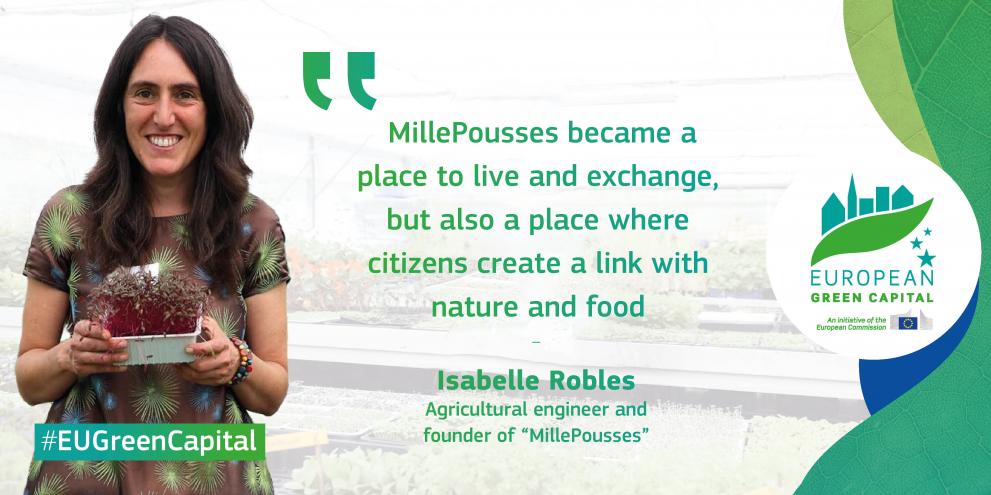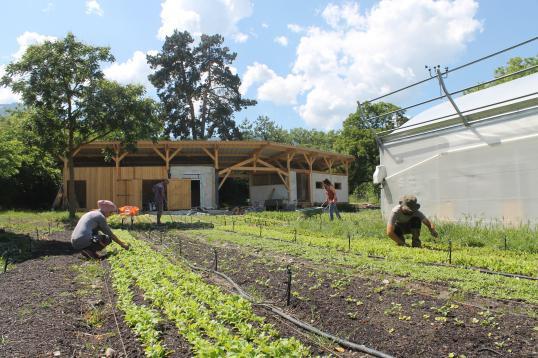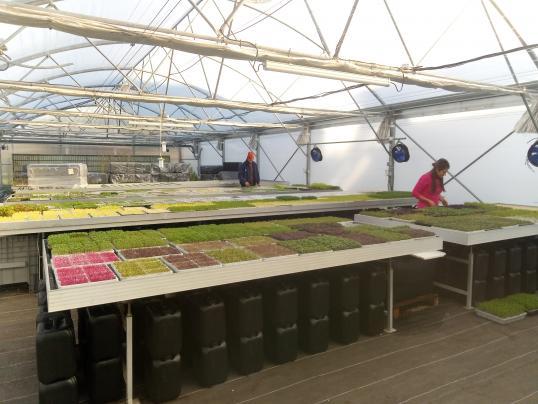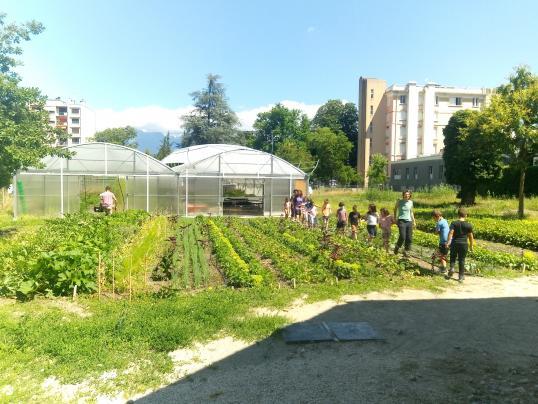Isabelle Robles, agricultural engineer and founder of “MillePousses” (“One thousand micro sprouts”) has realised her dream: she has built an urban farm with the aim to create social integration jobs and enhance circular economy in Grenoble.
Her urban farm has a bioclimatic greenhouse and she organises all deliveries by bicycle. Moreover, MillePousses is an ‘entreprise d’insertion,’ which supports people encountering both professional and social difficulties.
The EU Green Capital Secretariat interviewed her to find out more about her project.

Tell us a little about your background in the agricultural sector and how you came up with the idea of creating MillePousses.
I was attracted by agriculture at a young age and I wanted to specialise myself in this world. Therefore, I started nurturing my interest in agricultural economics and how agriculture influences socio-cultural behaviour in different countries. I worked with farmers’ associations both in France and Ecuador. After a while, I felt that I was ready to develop my own project where the social, agricultural and food aspects meet and ‘work’ together. This is when MillePousses ‘sprouted’ in 2018. The farm has 2500 m2 of land and 400 m2 of greenhouses and it is located in the town of Grenoble.
MillePousses is now a small enterprise. How many people are involved and above all, is it an asset for the local economy?
There are currently five employees working for MillePousses. We also collaborate with volunteers. As an urban farm, MillePousses combines local food production and access to employment for people in difficulty. Furthermore, we realised that people often come to take a walk around, discuss, and meet their neighbours. This is how MillePousses became a place where citizens may create a link with nature and food.
At MillePousses we have also created close connections with local restaurants: we collaborate with them and we try to best answer their needs. Some restaurant owners are sensitive to the issue of seasonal food, so working with us makes them more aware of how to use what is in the field at each moment. To give you a concrete example, right now, we have micro sprouts of chard, lettuce, lamb's lettuce and beets.
What is the added value of this project in your city?
The added-value is first for the neighbourhood: as mentioned above, citizens develop a link with the land and with food.
Secondly, there is an added-value for students, as we are next to a public catering school and future cooks learn from this method of production. The farm and the catering school share common projects.
Last but not least, the farm shows how social integration can be done. It creates an added-value for employment for vulnerable citizens that need to be re-integrated into the workforce.



